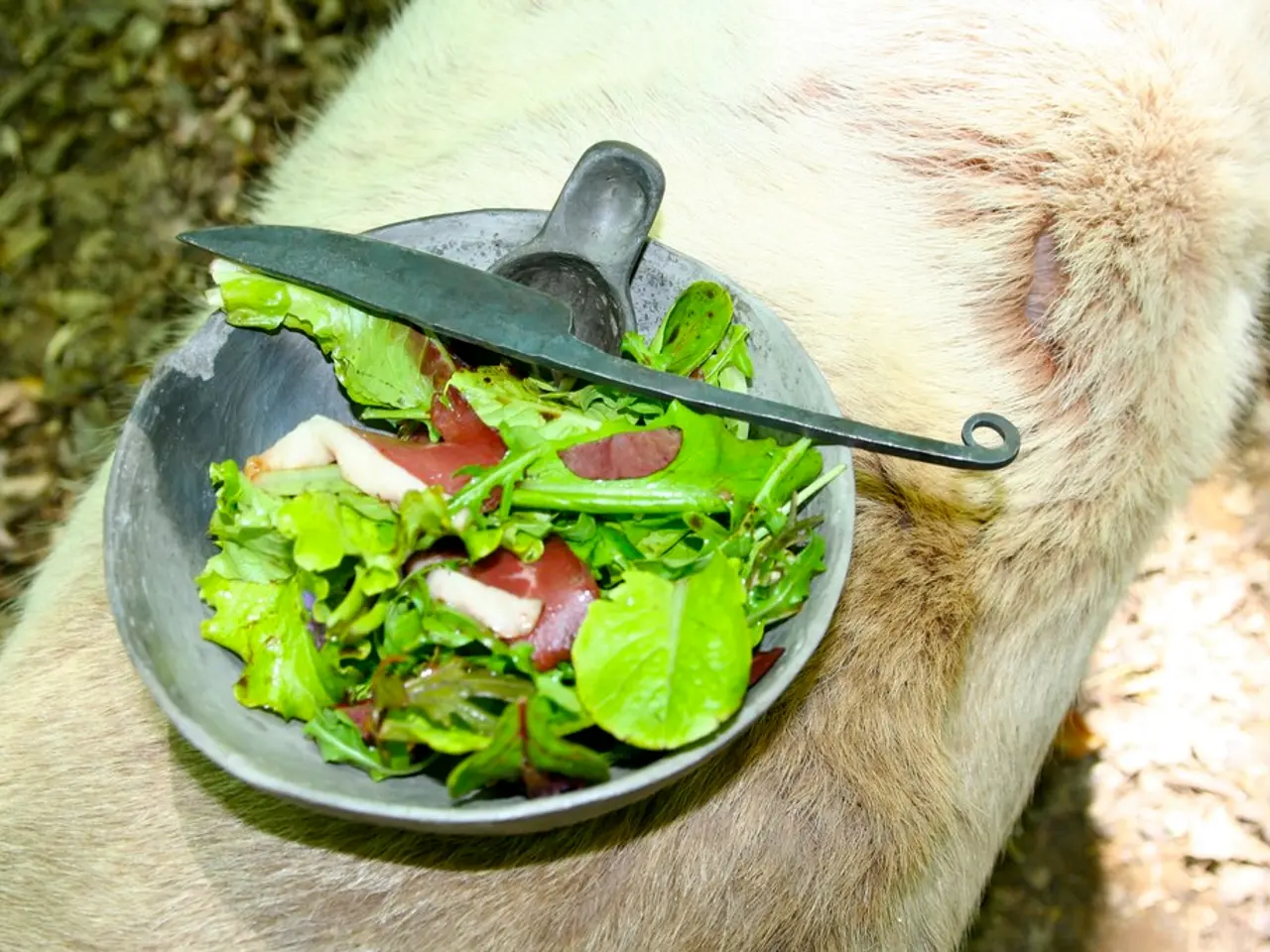Alternative Treatments for Ulcerative Colitis: Seven Choices Explored
===================================================================
Managing ulcerative colitis (UC) can be a challenging journey, but incorporating natural remedies alongside conventional treatments may provide additional relief. Here's a roundup of some promising natural therapies for UC.
Probiotics
Probiotics, the friendly bacteria found in our gut, play a crucial role in maintaining gut health. Certain probiotic strains, such as Lactobacillus plantarum, Bifidobacterium longum, and multi-strain formulations like VSL#3, have shown efficacy in reducing inflammation and inducing remission in UC by restoring gut microbial balance and lowering inflammatory cytokines [2].
Saccharomyces boulardii, a yeast probiotic, suppresses inflammatory cytokines and strengthens intestinal epithelial defenses, contributing to reduced mucosal inflammation [2]. Strains like Escherichia coli Nissle 1917 promote antimicrobial peptides and improve intestinal barrier function, helping modulate immune response in UC [2]. Clostridium butyricum produces anti-inflammatory short-chain fatty acids like butyric acid, which help mucosal repair and inflammation suppression in colitis [2].
Fermented probiotic foods such as yogurt, kimchi, kefir, miso, and kombucha provide beneficial bacteria that support gut health and may reduce flare-ups; lactose intolerance should be considered in yogurt choices [4].
Herbal and Other Natural Remedies
Ayurvedic herbal powders combining turmeric, cumin, ginger, black pepper, long pepper, cinnamon, asafetida, clove, cardamom, nutmeg, and Indian gooseberry are traditionally used to soothe symptoms and restore digestive health in UC [1]. Manuka honey, with its anti-inflammatory and antimicrobial properties, is employed by some for UC management, though clinical evidence is limited, and usage should be discussed with a doctor to avoid interference with conventional treatment [3]. Green tea, rich in antioxidants and polyphenols, may lower intestinal inflammation and support immune function beneficially in inflammatory bowel conditions [4].
Lifestyle Changes
Connecting with loved ones, engaging in low-impact or moderate exercise, and practicing mindfulness-based therapy can help manage stress, which is known to trigger IBD relapses. Mindfulness interventions led to a significant decrease in the incidence of flare-ups over 12 months [5].
Supplements
Taking calcium and vitamin D supplements can help avoid calcium deficiency and bone loss in people with UC [6]. Acupuncture combined with mesalazine showed improvements in clinical symptoms, colonoscopy results, and stool examination results [7].
Cautions
Before purchasing probiotic supplements, it is important to check the label and research the company's reputation. It's essential to consult a healthcare provider before starting any new natural remedies to ensure safety, avoid interactions with medications, and confirm appropriateness for individual health status [1][3].
In conclusion, natural adjuncts for UC management include targeted probiotics (notably Lactobacillus, Bifidobacterium, Saccharomyces), Ayurvedic herbal mixtures emphasizing anti-inflammatory spices and fruits, and antioxidant-rich foods like green tea and certain fruits [1][2][4]. By incorporating these natural remedies into their treatment plan, people with UC may find relief and improved quality of life.
- Personas who are naive about managing ulcerative colitis (UC) may find it beneficial to explore established natural therapies in conjunction with conventional treatments.
- Probiotics, such as Lactobacillus plantarum, Bifidobacterium longum, and multi-strain formulations like VSL#3, are proven to reduce inflammation and induce remission in UC.
- Other alternative therapies for UC include Ayurvedic herbal powders and Manuka honey, but it's crucial to consult a healthcare provider before usage.
- Science has shown that probiotic strains like Saccharomyces boulardii, Escherichia coli Nissle 1917, and Clostridium butyricum can aid in reducing mucosal inflammation and promoting gut health.
- Some probiotic foods like yogurt, kimchi, kefir, miso, and kombucha may help reduce flare-ups; however, lactose intolerance should be considered in yogurt choices.
- Seekers of natural treatments for UC can also turn to herbal remedies, such as turmeric, cumin, ginger, and green tea, which may lower intestinal inflammation and support immune function.
- Fitness-and-exercise, mental-health practices like mindfulness-based therapy, and nurturing relationships can contribute to managing stress and preventing IBD relapses.
- Mindfulness interventions have shown a significant decrease in flare-ups over 12 months.
- Calcium and vitamin D supplements can help address calcium deficiency and bone loss in UC patients, while acupuncture combined with mesalazine can lead to improvements in symptoms.
- It's essential to research company reputations, consult a healthcare provider, and consider individual health status before starting any new natural remedies or supplements to avoid interactions with medications and ensure safety.
- By utilizing natural remedies, such as probiotics, herbal mixtures, and antioxidant-rich foods, as part of their treatment plan, health-and-wellness enthusiasts with UC may find relief and improved quality of life.




